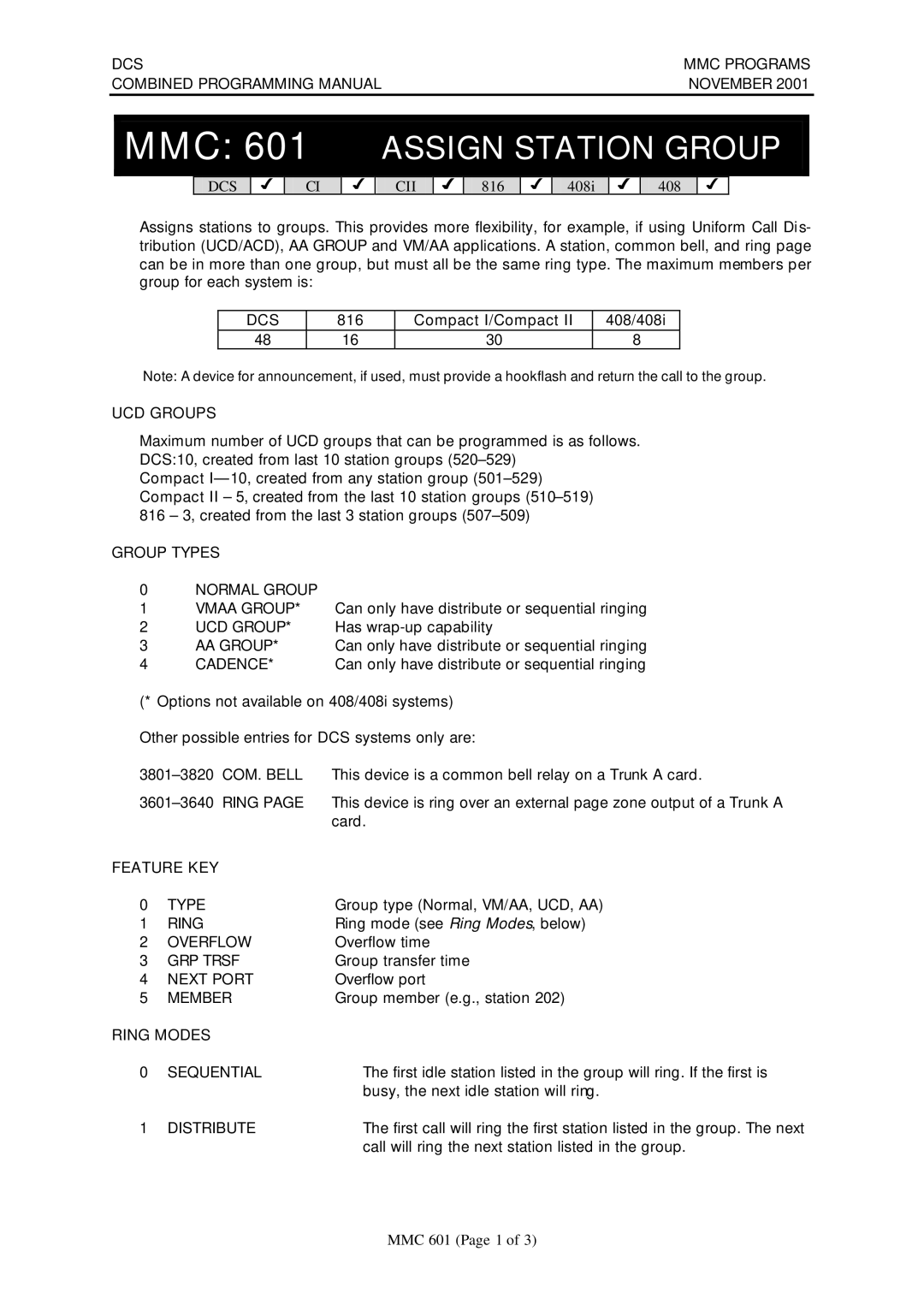
DCS | MMC PROGRAMS | ||||
COMBINED PROGRAMMING MANUAL | NOVEMBER 2001 | ||||
|
|
|
|
|
|
|
|
|
|
|
|
MMC: 601 ASSIGN STATION GROUP
DCS
3
CI
3
CII
3
816
3
408i
3
408
3
Assigns stations to groups. This provides more flexibility, for example, if using Uniform Call Dis- tribution (UCD/ACD), AA GROUP and VM/AA applications. A station, common bell, and ring page can be in more than one group, but must all be the same ring type. The maximum members per group for each system is:
DCS | 816 | Compact I/Compact II | 408/408i |
48 | 16 | 30 | 8 |
Note: A device for announcement, if used, must provide a hookflash and return the call to the group.
UCD GROUPS
Maximum number of UCD groups that can be programmed is as follows. DCS:10, created from last 10 station groups
Compact
GROUP TYPES
0 | NORMAL GROUP |
|
1 | VMAA GROUP* | Can only have distribute or sequential ringing |
2 | UCD GROUP* | Has |
3 | AA GROUP* | Can only have distribute or sequential ringing |
4 | CADENCE* | Can only have distribute or sequential ringing |
(* Options not available on 408/408i systems)
Other possible entries for DCS systems only are:
This device is a common bell relay on a Trunk A card. | ||
This device is ring over an external page zone output of a Trunk A | ||
|
| card. |
FEATURE KEY |
| |
0 | TYPE | Group type (Normal, VM/AA, UCD, AA) |
1 | RING | Ring mode (see Ring Modes, below) |
2 | OVERFLOW | Overflow time |
3 | GRP TRSF | Group transfer time |
4 | NEXT PORT | Overflow port |
5 | MEMBER | Group member (e.g., station 202) |
RING MODES |
| |
0 | SEQUENTIAL | The first idle station listed in the group will ring. If the first is |
|
| busy, the next idle station will ring. |
1 | DISTRIBUTE | The first call will ring the first station listed in the group. The next |
|
| call will ring the next station listed in the group. |
MMC 601 (Page 1 of 3)
